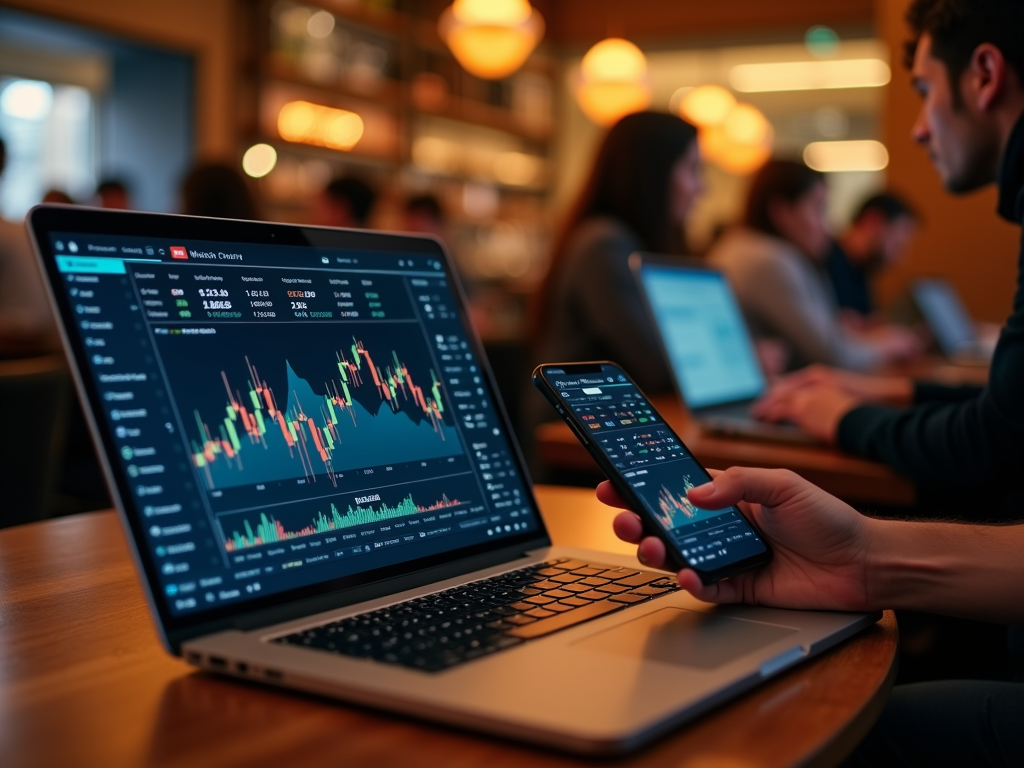Investing in Dubai’s Stock Market: A Guide for Business Growth
Investing in Dubai’s stock market offers a golden opportunity for businesses and individuals seeking financial growth in a vibrant economy. The UAE, particularly Dubai, has seen significant advancements in its financial sectors, making it an attractive destination for both local and foreign investors. With its strategic location, favorable regulations, and diverse investment options, Dubai provides a robust platform for potential investors. This guide will cover the essential factors to consider when investing in Dubai’s stock market and outline strategies for maximizing your business growth.
Understanding the Dubai Stock Market

The Dubai stock market, officially known as the Dubai Financial Market (DFM), is a vital component of the UAE’s economy. Established in 2000, DFM functions as a public market where investors can buy and sell shares of publicly traded companies. To navigate this dynamic environment, it is crucial to understand its structure and functioning. Here are some key aspects to consider:
- Market Structure: The DFM operates under a regulatory framework overseen by the Securities and Commodities Authority (SCA). This ensures a level playing field for all investors.
- Types of Securities: Investors can trade a variety of securities, including stocks, bonds, and ETFs, providing diverse investment opportunities.
- Trading Hours: Trading hours are generally from 10:00 AM to 2:00 PM, Sunday to Thursday, allowing for a structured and predictable trading environment.
- Market Indices: The DFM General Index tracks the performance of listed companies, providing insights into market trends.
- Foreign Investment: Foreign investors can own 100% of shares in certain sectors, making it a lucrative opportunity for international players.
Benefits of Investing in Dubai’s Stock Market

Investing in Dubai’s stock market presents several advantages that can enhance your investment portfolio. Here are some prominent benefits:
- Economic Stability: Dubai boasts a stable economy, underpinned by diverse sectors including tourism, trade, and finance.
- High Growth Potential: The UAE government’s commitment to innovation and sustainability creates a conducive environment for businesses to flourish.
- Tax Benefits: Investors enjoy zero capital gains tax on stock market profits, maximizing their returns.
- Access to Emerging Markets: Dubai serves as a gateway to emerging markets in the Middle East and North Africa, providing opportunities for geographically diverse investments.
- Advanced Infrastructure: The city’s cutting-edge financial infrastructure supports seamless trading experiences.
To start investing in Dubai’s stock market, follow these critical steps to ensure a successful venture:
- Research: Conduct thorough research on the market, sectors of interest, and specific companies to identify potentially lucrative investments.
- Open a Brokerage Account: Choose a reputable brokerage firm that offers access to the DFM, ensuring they provide excellent customer support and educational resources.
- Determine Your Investment Strategy: Define your risk tolerance, investment goals, and whether you prefer short-term trading or long-term holding.
- Diversify Your Portfolio: Minimize risk by investing in various sectors and asset classes, thereby making your portfolio resilient to market fluctuations.
- Stay Updated: Keep abreast of market trends, economic indicators, and global events that may impact your investments.
Common Challenges to Anticipate
While the Dubai stock market presents numerous opportunities, it’s essential to be aware of the potential challenges investors may encounter. Here are common challenges:
- Market Volatility: Like any stock market, the DFM is susceptible to fluctuations, which can affect your investment returns.
- Regulatory Changes: Stay informed about local and international regulations that may impact trading and market accessibility.
- Economic Dependencies: The market can be influenced by global economic conditions, affecting liquidity and investor sentiment.
- Understanding Local Practices: Navigating the cultural and business practices in Dubai can be challenging for foreign investors unfamiliar with the region.
- Information Overload: The vast amount of financial data available can be overwhelming; it’s crucial to filter and focus on relevant information.
Conclusion
Investing in Dubai’s stock market offers exciting possibilities for business growth by capitalizing on the region’s thriving economy. Through careful research, strategic investments, and an understanding of the local market dynamics, investors can create significant wealth. However, it is equally essential to remain aware of the challenges and stay informed about market trends. By following the steps outlined in this guide, you can position yourself effectively for success in this vibrant financial hub.
Frequently Asked Questions
1. What is the minimum investment required to start trading on the Dubai Financial Market?
The minimum investment required varies by brokerage, but generally, it is advisable to start with at least AED 10,000 to AED 15,000 to have a diversified portfolio.
2. Are there any restrictions for foreign investors in the DFM?
Foreign investors can own up to 49% of shares in most companies listed on the DFM, and some companies allow 100% foreign ownership, especially in specific sectors.
3. How do I stay updated on market trends and news?
To stay informed, subscribe to financial news outlets, follow market analysts, and utilize apps from your brokerage that provide real-time alerts and market analysis.
4. Can I trade online in Dubai’s stock market?
Yes, most brokerage firms in Dubai offer online trading platforms that allow investors to buy and sell stocks remotely.
5. What are the fees associated with trading on the Dubai Financial Market?
Trading fees typically include brokerage commissions, VAT, and other possible charges. It is essential to review these costs with your selected brokerage before starting to invest.







